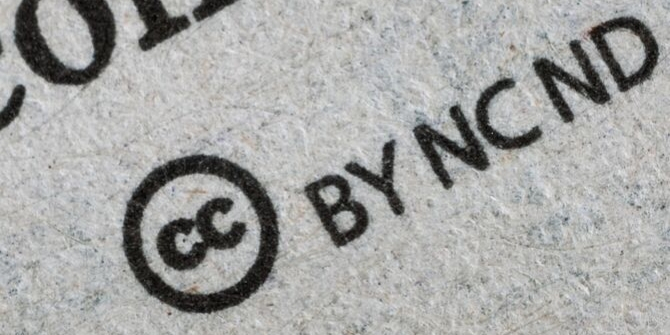For academic and research libraries the COVID-19 pandemic has necessitated a significant shift of resources towards supporting digital online access to resources. As a result, the prohibitive cost of some of these resources, notably e-textbooks, has become a flashpoint, even breaking into mainstream media and public debate. Here, Johanna Anderson, Paul Ayris and Ben White report on a recent event hosted by UCL’s Office for Open Science, and discuss how librarians, university presses and copyright experts have sought to address the issue.
Readers can find resources related to this event here and a recording of the event here.
The recent E-Textbook webinar organized by the newly formed UCL Office for Open Science and Scholarship brought together over 600 attendees from across the globe – including the UK, Switzerland, Canada, South Africa, Norway, Ireland, Germany, Spain, USA, and the Netherlands. This level of interest highlights the way in which the COVID-19 pandemic has brought to a head issues surrounding the online provision of learning resources, not just in the UK, but globally.
The webinar began with Johanna Anderson, Subject Librarian (Natural and Social Sciences), University of Gloucestershire, laying out the challenge facing librarians. Showing how since the COVID-19 pandemic began, forcing university teaching and services to move online, the creeping issue of acquiring academic e-books has been increasingly brought into stark focus. It is estimated that only 10% of academic titles are available for university libraries to purchase as digital copies for their students, and the books which are available, are frequently placed under restrictive licensing, made available only in bundles, and sold to libraries at incredibly high costs for single user or one-year access. As a result, academic librarians have been left with no choice but to tell staff and students that it is not possible to acquire key texts, and lecturers have had to re-design their reading lists around what is available.
It is estimated that only 10% of academic titles are available for university libraries to purchase as digital copies for their students
Johanna also explained how academic librarians have launched the #ebooksos campaign to demand an investigation into the academic e-book publishing industry by the Education Select Committee and the Competition and Markets Authority. With an Open Letter that has attracted over 3700 signatures from librarians, lecturers, students, Heads of Service, and other notable figures, media coverage of the campaign in the BBC, The Guardian, Times Higher Education, and a spreadsheet of examples of the prohibitive pricing and licensing restrictions, and sheer lack of availability, which librarians are coming across daily, Johana showed how the library community has been mobilized in response to this issue. However, publisher responses to the campaign so far have been dismissive, claiming that it is not possible to compare print and e-books, implying that librarians do not understand how e-books are used, and pointing towards the temporary free access that some of them provided during the beginning of the pandemic in 2020, indicating a lack of willingness to engage with librarians on the issue of e-books.
Dr Paul Ayris, Pro-Vice-Provost (UCL Library Services & UCL Office for Open Science and Scholarship) looked at a different aspect of e-textbook provision and the role university presses can play in alleviating market pressure. UCL Press – founded in 2015 and the UK’s first fully Open Access University Press – has published 185 research monographs that have been downloaded over 4 million times in 244 countries and territories. It has also recently launched an OA platform for E-textbooks. The driver for this was the inordinate expense of commercial e-textbooks, where UCL had to find £3 million extra and recurrent funding in 2020 (because of the pandemic) to support students whilst libraries were closed. Building on the success of its monograph publishing program, the new UCL E-Textbook platform aims to bring the same form of OA publication, that is geared to the needs of the curriculum, interdisciplinary collaboration, supporting students and libraries, and to bringing publishing back into the academy, to the publication of E-textbooks
It is, as Paul said, all about turning a threat into an opportunity by bringing the publication of educational material back into the academy. A clear indication for the potential of this format, is UCL’s first published OA e-textbook: Textbook of Plastic & Reconstructive Surgery by Deepak Kalaskar et al. (London: UCL Press, 2016). This volume, freely available in OA, has been downloaded 94,247 times in 192 countries and territories.
This experience, together with the crisis of the covid-19 pandemic, has convinced UCL to invest in the construction of an OA E-Textbook platform. Consultants have been appointed to map all the workflows. The Library is also mapping all e-textbooks purchased during pandemic, to identify key topics. The Press will work with authors (initially from UCL) to commission books. Royalty payments will be agreed and all the outputs will be OA. A second phase of the programme will see UCL reach out to other partners in the HE sector to build a membership coalition which will enable the list of e-textbooks and authors to be increased from across the sector. Manchester University has already expressed interest in investigating this model.
As Paul noted, a solution is in our hands – but universities have to make a decision. The third speaker was Ben White from the Centre for Intellectual Property Policy & Management at Bournemouth University and chair of the Legal Working Group of LIBER (Ligue des Bibliothèques Européennes de Recherche). Ben spoke on public libraries, e-books and copyright law. He pointed to the fact that with e-books in the UK, libraries cannot lend them between themselves, as they can with paper copy. This, plus the cost and lack of availability to libraries, means that UK public libraries have simply lost customers who prefer to read in digital format because public libraries are unable to offer a comprehensive eBook service. This single development threatens the role of libraries in society going forward. Ben suggested that the answer was CDL – Controlled Digital Lending. For educational material from public libraries in digital form, this would aid users to gain access. Proponents argue that CDL is legal because it relies on digital rights management (DRM) to ensure that any library-owned digitized work that is in copyright is loaned for a limited period of time, and that a one-to-one ratio of owned copies to borrowers is maintained. However, opponents have criticized this interpretation, arguing that CDL involves copying, not mere lending, and that a library’s purchase of a physical book does not entitle it to produce and lend an e-book or to distribute digital copies (Wikipedia).
For many, the current situation with e-textbooks feels like the situation with OA to research materials 15 years ago. In the latter case, the landscape has changed beyond recognition.
Ben saw support for the concept of CDL in a 2016 Dutch ruling of the European Court of Justice. Did the Ruling allow the scanning in of e-books? Alas that specific question was not asked, but the Advocate General explicitly referred to the Reproduction Right in the EU Copyright Directive. Some argue that the lending of electronic books implies acts of reproduction on the part of both the Library and the user, which go against the Copyright Directive. The Ruling does not agree with this, saying that as far as libraries are concerned, reproductions are covered by an exception in the Copyright Directive. However, the efficacy of CDL depends on national law and Ben’s pessimistic conclusion was that the UK legal framework would need to be changed first.
What conclusions can be drawn? Copious postings on the ZOOM chat and to the Twitter hashtag #ebooksos showed that the audience was in agreement with the main principles being expounded by the speakers. All the speakers agreed that the covid-19 pandemic had highlighted an issue which could no longer be swept under the carpet – the costs and difficulties of providing digital e-textbooks. There was widespread agreement that there was not one single solution to the challenge. ‘Let a thousand flowers bloom’ was the preferred approach. In terms of the HE sector, there was a clear feeling that academic culture in the production of textbooks needed to change. There are so many benefits to OA e-textbooks and these need to be explained to the academic community to win buy-in. For many, the current situation with e-textbooks feels like the situation with OA to research materials 15 years ago. In the latter case, the landscape has changed beyond recognition. Has covid-19 fast-forwarded the issue of OA to educational materials? There is a growing recognition that it may have.
Note: This article gives the views of the authors, and not the position of the Impact of Social Science blog, nor of the London School of Economics. Please review our Comments Policy if you have any concerns on posting a comment below.
Image Credit: Banner, reproduced with permission of author, background Zaini Izzudin via Unsplash.









Relentless campaigning for CDL is the way forward. But first, everyone should get behind the Interet Archive as a global test case.
Surely there is a role for legislation to limit abuses of market power, or are markets inviolate in these neoliberal times?
“It is estimated that only 10% of academic titles are available for university libraries to purchase as digital copies for their students” – can someone please explain that statement? From my position (collection manager at a university library), it’s not true, not even for e-textbooks….